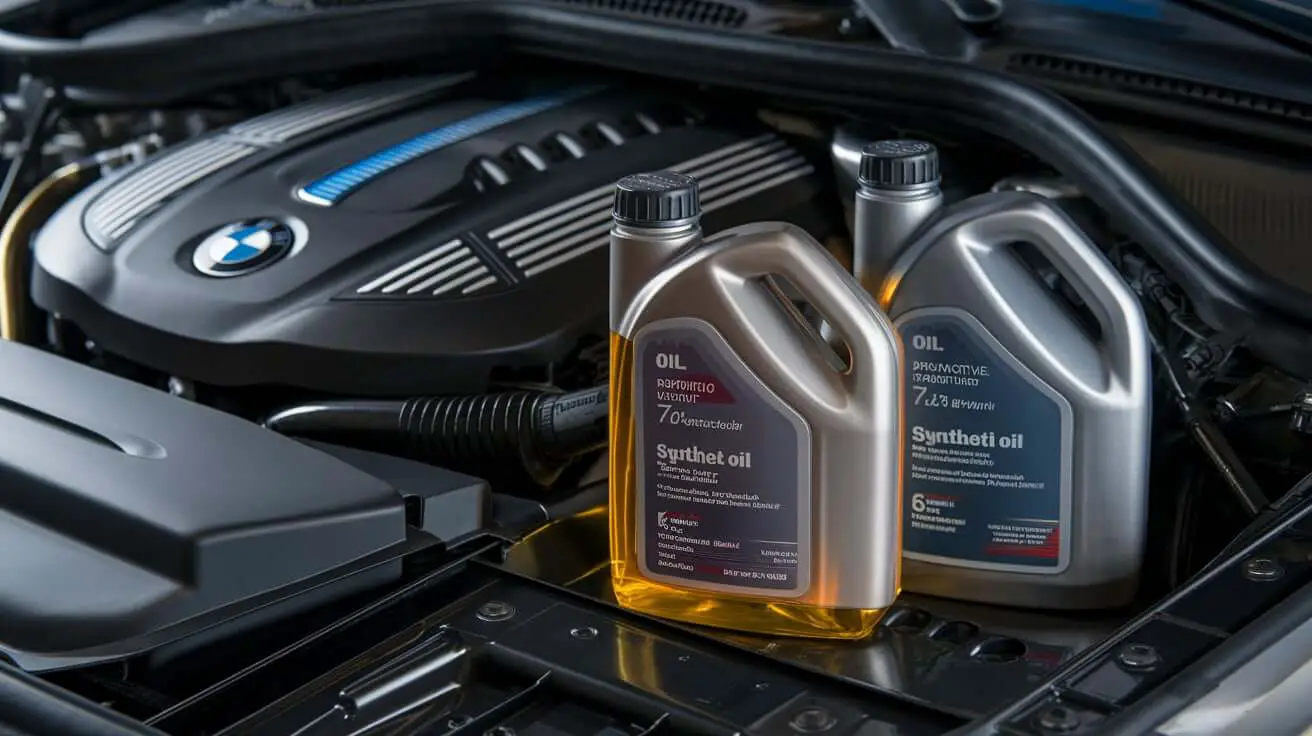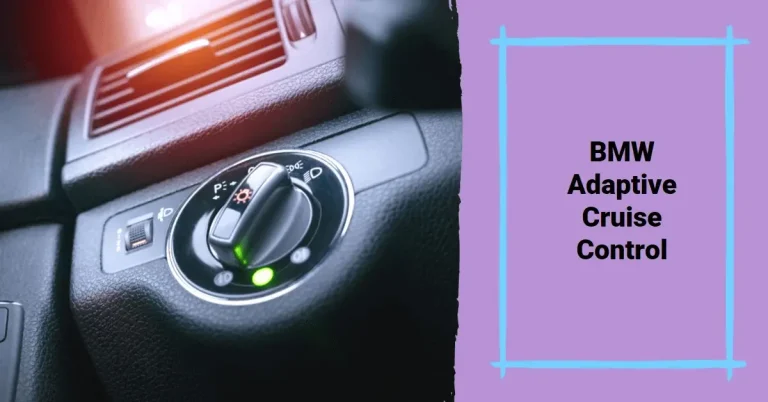What Oil Should I Use For 2008 BMW 3 Series?
Choosing the right oil for your 2008 BMW 3 Series is key. It ensures your engine runs well and lasts long. BMW suggests using oils that meet LL-01 specifications. This guide helps you pick the best oil for your car, including the 5,000-mile oil change interval.
In the U.S., finding the right oil for your 2008 BMW 3 Series is easy. It’s important to use the correct oil to keep your car in top shape. By looking at API ratings and base oil types, you can give your car the best care. The right oil improves your car’s performance, fuel efficiency, and lifespan.
BMW-Recommended Oil Specifications
Choosing the right oil for your 2008 BMW 3 Series is key. BMW recommends 5W-40 and 5W-30 oils for most climates. These oils meet the BMW LL-01 standards, ensuring your engine runs well and lasts long.
The API SL rating is also important. It’s good for 2008 models, protecting your engine well. Remember, API ratings change over time. So, newer models might need SN, SM, or SP ratings.
Factory Specifications
BMW’s factory says using high-quality oils is vital. Oils like Castrol Syntec European Formula SAE 0W-30 and Mobil 1 SAE 0W-40 meet the LL-01 standard. They protect and perform well in your engine.
Viscosity Requirements
The right oil viscosity depends on your driving climate. For most, 5W-40 and 5W-30 oils are fine. But, always check your owner’s manual for specific advice. Some climates might need different viscosities.
API Ratings
API ratings are key when picking oil for your car. The SL rating is good for 2008 models. But, newer cars might need SN, SM, or SP ratings. These ensure your engine gets the best protection and performance.
Synthetic Oil Benefits for Your BMW 3 Series
Using synthetic oil in your 2008 BMW 3 Series has many benefits. It offers superior BMW engine protection and better oil performance. Synthetic oils are made to protect engines better, perform better, and last longer than regular oils.
Choosing the right oil viscosity is key to avoiding engine damage. Additives act as a final defense. Synthetic oils flow better and protect more, making them perfect for BMW engines. Car makers, including BMW, now prefer lighter oils thanks to new oil technology.
The main advantages of synthetic oil for your BMW 3 Series are: * Better engine protection and performance * Longer oil life and less wear on engine parts * Better fuel economy and lower emissions * More protection against corrosion and rust * Better performance in extreme temperatures
Choosing synthetic oil means your BMW 3 Series gets top-notch protection and performance. Synthetic oil’s superior performance and BMW engine protection make it a great choice for BMW owners. They want to get the most from their vehicle.
| Oil Type | Viscosity | BMW Recommendation |
|---|---|---|
| Synthetic Oil | 5w-40 | LL04 |
| Conventional Oil | 5w-30 | Not Recommended |
Oil Capacity and Filter Requirements
Keeping your 2008 BMW 3 Series in top shape means knowing about oil capacity and filter needs. The oil amount needed depends on the engine type. Some owners say their car needs about 6 quarts of oil. Remember, oil capacity and oil fill after a change are different. The actual fill might be a bit more because of leftover oil and container sizes.
For a proper oil change, using the right oil filter is key. Also, following the recommended
Drain Plug Specifications
is important. The BMW 3 Series’s oil and filter are made to work together. The wrong filter or too much oil can cause oil to foam, harming the engine.
Here are some important points for oil and filter needs in your 2008 BMW 3 Series:
- Oil capacity: 6 quarts (depending on engine type)
- Oil filter specifications: BMW-recommended oil filters
- Drain plug torque: follow recommended specifications
By following these tips and using the right oil filter and amount, you can keep your engine running well. Always check your owner’s manual for oil and filter advice. If unsure, talk to a trusted mechanic.
| Engine Type | Oil Capacity | Oil Filter Specifications | Drain Plug Torque |
|---|---|---|---|
| 2.0L | 6 quarts | BMW-recommended oil filter | 30 ft-lbs |
| 3.0L | 6.5 quarts | BMW-recommended oil filter | 30 ft-lbs |
What Oil Should I Use For 2008 BMW 3 Series: Complete Guide
Choosing the right oil for your 2008 BMW 3 Series is key. You need to follow the BMW oil guide and pick the best oil for your car. There are many options, including OEM and aftermarket brands. It can be hard to decide which one is best.
Think about the climate and how you drive. For very hot or cold weather, synthetic engine oils work best. Castrol Syntec, Mobil 1, and Pennzoil Platinum are good choices. They are all approved by BMW. Remember, BMW changes its oil formulas every few years. So, pick an oil that fits the latest standards.
Here are some important things to think about when picking oil for your 2008 BMW 3 Series:
- Viscosity: Choose an oil with the right viscosity for your engine, like 0W-30 or 0W-40.
- API Rating: Make sure the oil has the API SP or SN rating. This is good for gasoline direct-injection engines.
- BMW Approval: The oil should meet BMW’s Long-life rating LL-01 or LL-01FE.
By considering these points and picking the right oil, your 2008 BMW 3 Series will run well. Always change the oil every 5,000 miles. This keeps your engine healthy and running smoothly.
Premium Oil Brands Compatible With BMW 3 Series
Choosing the right oil for your 2008 BMW 3 Series is key. Look for premium oils that match BMW specs. Castrol, Mobil 1, and Liqui Moly are top choices. They offer great engine protection and performance.
Top-Rated Options
Castrol Edge, Mobil 1 Extended Performance, and Liqui Moly Synthoil High Tech are highly recommended. These oils protect your engine well, save fuel, and perform great. They also meet the latest API ratings, ensuring they’re right for your BMW.
Price Comparison
Prices for these premium oils vary. But, their quality and performance make them worth it. Here’s a quick look at the prices:
| Oil Brand | Oil Type | Price (per quart) |
|---|---|---|
| Castrol Edge | Synthetic | $8-$10 |
| Mobil 1 Extended Performance | Synthetic | $10-$12 |
| Liqui Moly Synthoil High Tech | Synthetic | $12-$15 |
Choosing the best oil for your BMW 3 Series depends on your needs. Think about price, API ratings, and engine protection. This way, you’ll make a smart choice and keep your car running well.
Cold Weather Oil Requirements
Driving a BMW in cold weather means you need the right oil. A 0W-30 or 0W-40 oil is best for cold starts. These oils help your engine run smoothly when it’s cold, keeping it from wearing out.
Castrol Edge 0W30 and M1 0W-40 are top picks for BMWs in winter. The M1 0W-40 is BMW LL-01 approved and works great in cold. Many BMW owners buy lots of it to always have some on hand.
Using the right winter oil for your BMW has many benefits:
- Improved cold start protection
- Reduced engine wear
- Enhanced low-temperature viscosity
- Optimal performance in cold weather conditions
Choosing the right winter oil keeps your engine safe and running well, even when it’s freezing.
| Oil Type | Viscosity | Cold Start Protection |
|---|---|---|
| Castrol Edge 0W30 | 0W-30 | Excellent |
| M1 0W-40 | 0W-40 | Excellent |
Oil Change Intervals for 2008 BMW 3 Series
Keeping your 2008 BMW 3 Series in top shape is key. Knowing when to change the oil is vital. BMW suggests changing the oil and filter every 15,000 miles or 24 months. But, if you don’t drive much, change it yearly, even if the CBS system doesn’t say so.
How often you need to change your oil depends on how you drive and where you drive. The CBS system checks your car’s conditions to tell when it’s time for an oil change. It looks at things like temperature, speed, and load.
Mileage-Based Schedule
Here’s what the mileage schedule for oil changes looks like:
- Every 15,000 miles or 24 months, as recommended by the CBS system
- Every 10,000 miles, as suggested by some dealers and users
- Every 5,000 to 7,500 miles, as preferred by some users for added safety
Time-Based Schedule
Here’s the time-based schedule for oil changes:
- Every 1 year, as recommended by BMW for cars not driven frequently
- Every 12 months, as recommended for low-mileage vehicles (6,000 miles or less annually)
Remember, the right oil change interval can vary. Always check your owner’s manual or talk to a BMW expert. They can help figure out the best schedule for your car.
Signs Your BMW Needs an Oil Change
Regular oil changes are key to keeping your BMW’s engine running well. Skipping oil changes can cause engine problems, leading to expensive fixes. It’s important to know when your BMW needs an oil change.
Look out for signs like dark oil, unusual engine sounds, and dashboard lights. These lights warn you of issues like low oil or dirty filters. Catching these signs early can prevent bigger problems and keep your BMW in top shape.
Here are some key signs to look out for:
- Darkened oil color: If the oil is dark or dirty, it’s a sign that it’s time for an oil change.
- Engine noise: Unusual engine noises, such as grinding or clunking, can indicate low oil levels or dirty oil filters.
- Dashboard warning lights: If your BMW’s dashboard warning lights are illuminated, it may be a sign of a problem with the oil or engine.
By spotting these signs and acting fast, you can avoid engine troubles. Regular oil changes, as BMW recommends, keep your car running well for longer. This ensures your BMW stays in great condition for years.
Performance Impact of Oil Selection
The quality of oil in a 2008 BMW 3 Series matters a lot. It affects how long the engine lasts and how well it uses fuel. Using high-quality oil can protect the engine better, improving both performance and fuel use.
Choosing the right oil can really change how well your car runs. For example, using oil that meets BMW’s ACEA A3/B3/B4 standards is best. This can help your engine last longer and use fuel more efficiently.
Engine Protection Factors
Protecting the engine is key when picking oil. The oil’s thickness, how well it holds together, and how much it evaporates matter. Thicker oils, like those meeting ACEA A5/B5, protect better in hot conditions.
Fuel Economy Effects
Fuel efficiency is also important when choosing oil for a 2008 BMW 3 Series. Thinner oils, like those meeting ACEA A1/B1, can save fuel in some situations. But, it’s important to find a balance to keep the engine running well for a long time.
Here’s a look at how different oil specs affect engine protection and fuel use:
| Oil Specification | Engine Protection | Fuel Efficiency |
|---|---|---|
| ACEA A3/B3/B4 | High | Good |
| ACEA A5/B5 | High | Good |
| ACEA A1/B1 | Lower | Better |
In summary, the oil you choose for a 2008 BMW 3 Series is very important. It greatly affects how long the engine lasts and how well it uses fuel.
Common Oil-Related Problems in BMW 3 Series
BMW 3 Series owners might face oil-related issues like oil consumption and leaks. These can cause engine wear, hurting the car’s performance. Keeping up with regular maintenance is key to avoiding these problems.
Some common oil-related problems in BMW 3 Series include:
- Oil leaks from valve cover gaskets and oil filter housing gaskets
- Excessive oil consumption in high-mileage engines
- Engine wear due to poor oil quality or inadequate maintenance
To tackle these issues, using high-quality oil that meets BMW’s standards is vital. Regular oil changes and checks can spot problems early. Being proactive helps keep your BMW 3 Series running well, reducing the chance of oil leaks, consumption, and engine wear.
| Oil-Related Problem | Cause | Solution |
|---|---|---|
| Oil leaks | Worn or damaged gaskets | Replace gaskets, inspect and repair or replace oil filter housing |
| Excessive oil consumption | High-mileage engine, poor oil quality | Use high-quality oil, regular oil changes, inspect and repair or replace engine components |
| Engine wear | Poor oil quality, inadequate maintenance | Use high-quality oil, regular maintenance, inspect and repair or replace engine components |
Oil Analysis and Testing
Regular oil analysis and testing can give you important insights into your BMW’s engine health. It helps spot issues early, before they get worse. Checking oil quality shows how well your engine’s lubrication system is doing. Engine wear analysis finds signs of wear on moving parts.
Oil condition monitoring helps figure out when it’s time for an oil change. This can make your engine last longer. Professional testing services can check your oil’s viscosity, contamination levels, and additives. This info helps you change your oil at the right time, keeping your engine running smoothly.
Some popular oil brands, like Castrol and Mobil, offer oil analysis services. They help you understand your engine’s condition. This way, you can plan your maintenance schedule better.
Benefits of Oil Analysis
- Early detection of engine problems
- Optimized oil change intervals
- Improved engine performance and fuel efficiency
- Extended engine life
There are also DIY ways to check your oil condition. You can do regular oil checks, use oil test kits, and watch your engine’s performance and fuel efficiency. Mixing these DIY methods with professional oil analysis gives you a full picture of your engine’s health. This helps you make smart decisions about its care.
| Oil Brand | Viscosity | API Rating |
|---|---|---|
| Castrol Syntec | 5W-30 | SN |
| Mobil 1 | 0W-40 | SN |
| Valvoline | 5W-30 | SN |
Conclusion
Choosing the right oil and regular maintenance are key for your 2008 BMW 3 Series. By following the BMW oil maintenance tips in this guide, your engine stays protected and runs smoothly. Always watch for engine care tips and fix problems quickly to keep your BMW running well.
With the correct oil and regular upkeep, your 3 Series will stay in great condition. This ensures you get to enjoy the amazing driving experience it offers.
FAQs
What oil should I use for my 2008 BMW 3 Series?
This guide will help you find the right oil for your 2008 BMW 3 Series. It ensures your engine stays in top shape and lasts longer.
What are the BMW-recommended oil specifications for the 2008 3 Series?
We’ll talk about the LL-01 standard and the right viscosity for different climates. We’ll also cover the API ratings for this model year.
What are the benefits of using synthetic oil in my 2008 BMW 3 Series?
Using synthetic oil offers better engine protection and performance. It also means you can go longer between oil changes. We’ll dive into these benefits.
How much oil does my 2008 BMW 3 Series require, and what oil filters should I use?
We’ll give you the oil capacity for each engine type. We’ll also suggest the best oil filters and drain plug specs for maintenance.
What are the key factors to consider when selecting the right oil for my 2008 BMW 3 Series?
This guide will cover important factors. We’ll talk about BMW specs, climate, and driving habits. This will help you choose the best oil.
What are some premium oil brands that are compatible with the 2008 BMW 3 Series?
We’ll show you top oil brands that fit BMW specs. We’ll also compare prices to help you pick the best oil for your car.
What oil should I use for my 2008 BMW 3 Series in cold weather conditions?
We’ll discuss how cold weather affects engine protection. We’ll recommend oils that work well in winter.
How often should I change the oil in my 2008 BMW 3 Series?
We’ll look at oil change schedules based on mileage and time. We’ll also talk about how your car’s computer helps decide when to change the oil.
What are the signs that my 2008 BMW 3 Series needs an oil change?
We’ll point out visual signs, engine performance changes, and dashboard lights that mean it’s time for an oil change. This helps you keep your car in good shape.
How does oil selection impact the performance of my 2008 BMW 3 Series?
We’ll explore how different oils affect your engine. We’ll discuss how they impact longevity and fuel economy. This shows the importance of choosing the right oil.
What common oil-related problems might I encounter with my 2008 BMW 3 Series?
We’ll talk about oil leaks and excessive oil use. We’ll explain how these issues can harm your engine’s performance. We’ll offer advice on fixing these problems.
How can oil analysis and testing benefit my 2008 BMW 3 Series?
We’ll explain how testing services and DIY methods can check your engine’s oil. This lets you stay ahead of maintenance needs.







